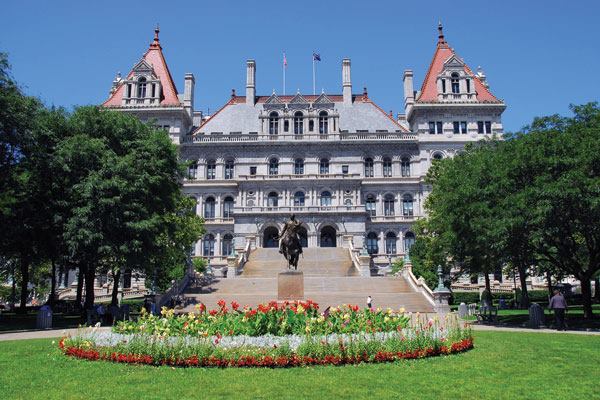Licensing bills are taking shape in several key Northeast states.
Connecticut, Massachusetts and New York are experiencing activity on different fronts, and industry members are optimistic about the future of licensing in these regions.
“We are taking a trade and making it a profession,” said Lawrence Caniglia, executive director of the Northeast Spa & Pool Association. “This raises the bar and brings us to another level.”
Of the three states, Connecticut is closest to issuing licenses to builders. After several rounds of review, the specifications for Senate Bill 863, which took effect in 2011, are nearly complete, though the final language has yet to be adopted. The approval may take at least three more months, Caniglia said.
With the law already in effect while language is yet in development, builders have been left in a quandary as to how to act. To expedite the process, the Connecticut Department of Consumer Protection began accepting applications in January and will process them once the regulations are finalized, said Caniglia, who anticipates upwards of 300 builder’s licenses to be issued in the state.
“This is a huge step forward,” he said. “We feel like we are finally getting there.”
Caniglia does have one concern, however — that the grandfathering deadline will come up fast, even if it is nine months away, on Dec. 31, 2013. After that deadline all builders, no matter how vast and deep their experience, will need to take a state examination. (See chart below for grandfathering criteria.)
Meanwhile, measures are being taken to create a law in Massachusetts. On Jan. 18, Sen. Katherine Clark (D-5th Middlesex) filed S.85, which closely mirrors the Connecticut bill. A similar one was filed in 2011, but it died in session so it could be explored further.
Those championing the current bill hope its fate will be different this time around. Chris Callanan, president of North Shore Pool & Spa in Wakefield, Mass., has spearheaded the efforts on both occasions and is working with other industry members at a grass-roots level to gain support for the measure.
At initial meetings, professionals have been receptive to the proposed law, Callanan said. However, it has become apparent there is little communication and unity between pool builders and state inspectors, which is an issue that industry leaders plan to address in the coming months. A task force has been created to deal with that issue and other aspects of the bill, such as its language and plans for regulation and enforcement. The 15 or so members of the task force will meet regularly and hope to finalize the bill’s language later this spring, he said.
“I’m trying to make sure the people in our industry become more proactive and better in self-regulating,” said Callanan, who also represents Region 9 on the APSP Board of Directors. “We realize there are problems and that there are people who claim to be pool professionals who don’t have the right qualifications and education — and when those instances come up, they give us all a black eye.”
In neighboring Nassau County, N.Y., builders now are required to obtain a license before constructing a pool. Advocates also are working to introduce a similar bill in Suffolk County, with the language currently being written, Caniglia said. Proposals also have been made to the Department of Consumer Affairs in Rockland and Westchester counties, but they are in the early stages of development.
As it currently stands, Connecticut, Florida and California require licensing specifically for swimming pool contractors. As more states adopt such legislation, experts anticipate others will follow suit. In preparation for this, APSP in February appointed John Romano chairman on a task force for licensing nationwide.
The goal is to create a resource for licensing on a state-by-state basis for those who don’t currently have such laws but are exploring the option, explained Romano, president of All American Custom Pools and Spas in Norwalk, Conn., and an APSP regional director.
“Over time, we have been getting licensing through,” said Romano, a PSN Top Builder. “Because of what we did in Connecticut, that was brought over to Nassau County, and now Westchester and Rockland are looking at it. New Jersey and Pennsylvania are looking at it, too. All kinds of positive things are coming out of it.”




